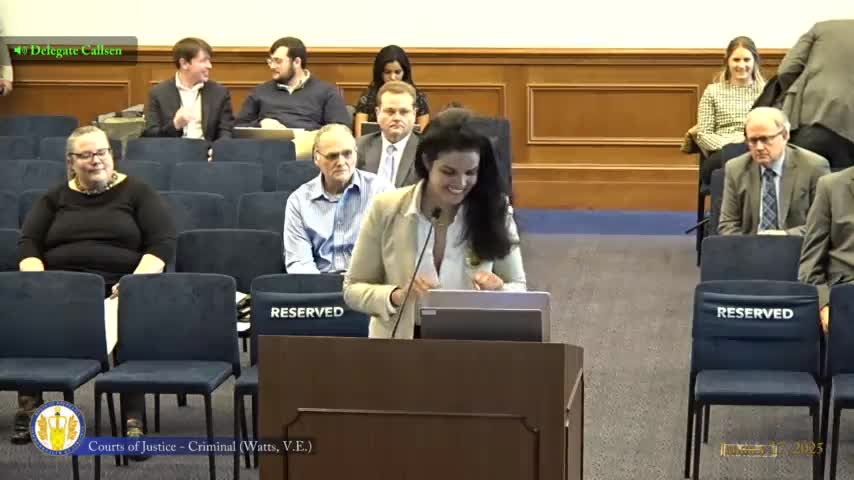Subcommittee restores judicial discretion on secured bonds in substitute for HB 1873
Get AI-powered insights, summaries, and transcripts
Subscribe
Summary
The subcommittee voted to recommend reporting HB 1873, a VCJC‑backed bill that removes a mandatory secured‑bond requirement that applied in certain circumstances and restores judicial discretion over secured vs. unsecured conditions; supporters said the change prevents poor defendants from being detained solely for inability to pay bond.
Delegate Colson introduced HB 1873, a measure stemming from the Virginia Criminal Justice Conference (VCJC) that seeks to restore judicial discretion in setting secured versus unsecured bonds. Under existing language, certain preexisting conditions (prior felony convictions, active bond, probation/parole status) could mandate secured monetary bond; the substitute removes the mandatory secured‑bond requirement so a judicial officer may consider statutory bond‑determination factors and exercise discretion.
Doug Grama (co‑chair of the VCJC committee that recommended the fix, per testimony) and other supporters explained that the bill preserves judicial authority to set secured bond when necessary but prevents courts from automatically requiring secured monetary bond in cases where other nonmonetary or unsecured conditions would be appropriate. Tim Coyne, previously a public defender and now deputy director with the Virginia Indigent Defense Commission, said in rural jurisdictions mandatory secured bonds can mean many days of pretrial detention because courts do not sit daily and defendants cannot afford even modest secured bond amounts.
A Commonwealth’s attorney who appeared in opposition (not representing VACA) cautioned that the VCJC compromise had originally preserved secured‑bond mandates in certain circumstances (for example, when a defendant committed a new felony while already on bond), and urged careful review of the substitute. Counsel for the subcommittee said the substitute restores the court’s full discretion to set appropriate conditions for release and that those who are not candidates for bond under the statutory factors would still not receive bond.
The subcommittee adopted the substitute and recommended reporting the bill to the next stage. The transcript records the committee’s recommendation as "by a vote of 523" (as recorded in the hearing); the numeric tally in committee minutes should be verified in the official roll call.
